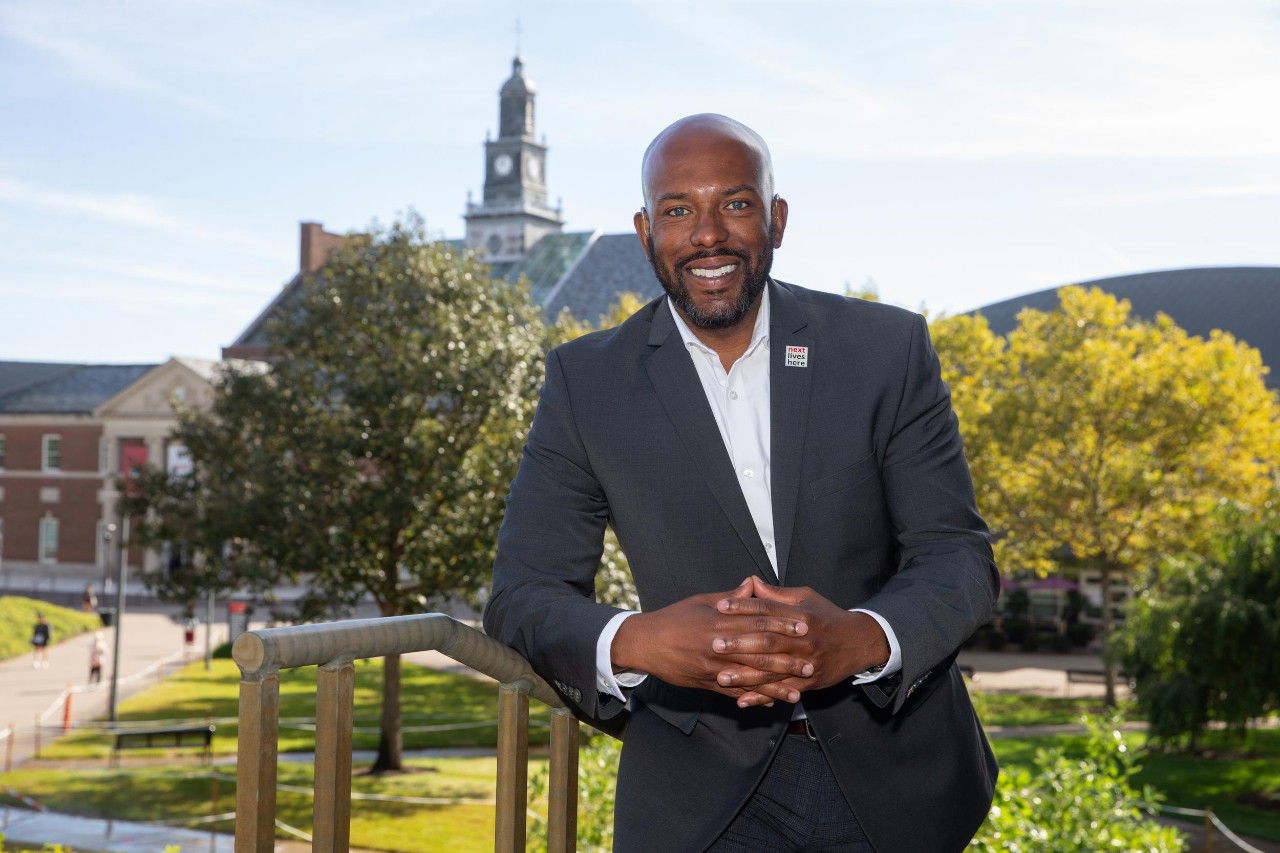
September 29, 2024
University Of Cincinnati Hires First Black, Deaf Assistant Dean
Christopher Johnson serves as assistant dean of inclusive excellence at UC’s College of Cooperative Education and Professional Studies.
The University of Cincinnati (UC) is making strides in representation. The school recently hired its first Black and deaf assistant dean.
Christopher Johnson is leading the charge at Cincinnati to have more inclusive leadership. Since his appointment as an academic advisor, he has lofty plans for the school’s student body. Johnson serves as Assistant Dean of inclusive excellence at UC’s College of Cooperative Education and Professional Studies (CCPS).
“People need to see that UC is employing deaf and neurodivergent leaders in prominent positions,” shared Johnson in an interview with UC News.
He will work within the campus to launch the college’s inclusive excellence strategic plan. While UC already made history in 1906 for the first-ever co-op employer program, it hopes to expand its paid opportunities for students even further. Johnson wants to ensure those of differing backgrounds and disabilities can take part in this mission.
Through his leadership, Johnson aims to bring disability awareness and justice to the main stage. He encourages these students, including able-bodied individuals, to overcome obstacles, leading to a more equitable workforce and academic field.
“Being culturally and linguistically deprived growing up in the South was a life-changing experience for me and my family,” expressed Johnson. “Being the first deaf person in my family to receive multiple degrees has pushed me to go above and beyond to raise the standard of academic excellence and sense of belonging, not only for deaf and hard-of-hearing students but also for [American Sign Language] students who passionately bridge gaps between mainstream and deaf communities.”
The assistant dean added, “The resilience and persistent advocacy for my rights and access to education were the stepping stones that paved the way for my opportunity to break the cycle of Black deaf individuals being entrapped in the school-to-prison pipeline. To be Black and deaf in higher education is not interchangeable; it is addressing two separate experiences simultaneously.”
For people aged 25 to 64, only around .4% of Black deaf people have completed a doctoral degree, medical degree, or juror doctor degree combined. Moreover, a 2016 Disabilities Report by the U.S. Department of Justice confirmed that 33% of Black state prisoners identified as having disabilities, while 5.6% specified hearing problems.
In light of these issues, Johnson hopes this program increases the number of opportunities for deaf people of color.
“Disability justice and inclusive excellence frameworks are essential to dismantling exclusionary practices in each of our decision-making processes,” he concluded. “My hope is that this article inspires able-bodied individuals to break the barriers that have silenced the deaf community for centuries and to ensure that their voices are heard and valued in decision-making, creating an inclusive and equitable university environment for all.”
RELATED CONTENT: Gallaudet University Holds Graduation Ceremony For Black Deaf Students And Teachers Segregated In The 1950s